By Scott M. Fulton, III, Betanews

For the record, the connection between Hewlett-Packard and Palm, Inc. was not something most of us saw coming, and which very few reputable observers of this industry bet their reputations on.
In retrospect, one sees now some of the obvious connections we missed then: the fact that Todd Bradley, now chief of HP's Personal Systems Group, was Jon Rubinstein's predecessor as CEO of Palm; the fact that HP's smartphone market share fell last year to below one hundredth of one percent, and yet Bradley was still charged with the task of devising an instant comeback; and the fact that HP's latest iPaq, announced last December (pictured below) bears so little distinction from a BlackBerry Curve, Samsung BlackJack, or Motorola Q that it may as well be called the "Me2."
 But waving in front of HP's obvious red flags were several more obvious white ones:
But waving in front of HP's obvious red flags were several more obvious white ones:
- Since Mark Hurd took over as CEO, the company has dramatically cut costs, with an emphasis on streamlining operations.
- While it's nice to experiment with product categories outside one's typical bailiwick, HP's last go-round -- its 2006 acquisition of high-class custom computer maker VooDoo PC -- resulted in that division's productivity declining to around that of iPaq.
- With margins falling in the one-time-goldmine printer (and printing ink) business, the company's wrestling with a complete makeover of its second most important consumer-facing brand, possibly merging it with the Personal Systems Group (PSG) division that handles PCs.
- HP's growth divisions today are services and enterprise technologies, especially now that it's acquired EDS, and now that it's championing Dell on almost every front.
- Finally, the cash-tight HP is already paying almost $3 billion for 3Com, the network technology pioneer that -- so ironically now -- became Palm's parent company in 1997 through its acquisition of USRobotics, and then spent six years (1999 - 2005) spinning it off into a separate entity, in such a costly venture that 3Com became ripe for a buyout by HP.
So HP buying Palm? Nah. No way.
Anyone listening in yesterday to HP's hastily arranged analysts' call might have gotten the impression that just 24 hours earlier, HP execs would have said exactly the same thing -- even former Palm CEO Bradley. When asked repeatedly how they plan to make this marriage work, Bradley and VP for Investor Relations Jim Burns indicated they may not actually know the answer to that for several months.
Veteran smartphone business observer and NPD Executive Director of Industry Analysis Ross Rubin -- whose insight is not only 20/20 but often 360 degrees as well -- sees some of the coefficients, if not yet the entire formula, for sealing the deal. In an interview with Betanews yesterday, Rubin pointed out the synergies that could make the deal work...provided Palm transforms itself into yet another new kind of brand for an untapped market. Again.
 Indeed, last week, Rubin was talking with us about the synergies that could make Lenovo + Palm work. "At least some of the factors that we discussed for Lenovo apply to HP," Rubin told us late yesterday. "So there are all those opportunities to gain entrance into the carrier channel, to beef up what had been a modest smartphone portfolio business, and to gain access to an operating system that can be used on a broader range of devices, including tablets and smartbooks -- which HP has either already launched or shown publicly. So all of that holds true.
Indeed, last week, Rubin was talking with us about the synergies that could make Lenovo + Palm work. "At least some of the factors that we discussed for Lenovo apply to HP," Rubin told us late yesterday. "So there are all those opportunities to gain entrance into the carrier channel, to beef up what had been a modest smartphone portfolio business, and to gain access to an operating system that can be used on a broader range of devices, including tablets and smartbooks -- which HP has either already launched or shown publicly. So all of that holds true.
"There are some additional synergies between the two companies. Palm is doing quite a bit in terms of cloud backup and cloud services, which of course is an important business for HP. And HP has world-class R&D, global reach, and financial resources. On the conference call, Todd Bradley said that HP will invest heavily, both in the R&D and sales and marketing for Palm."
Usually an acquisition target does not announce a revenue shortfall on the morning that the deal is to be done. Palm did, in a move that by noon led veteran observers to believe that any deal -- with Lenovo, Huawei, Wal-Mart, anyone -- was off the table. Did HP really come up with a miracle solution for Palm in just minutes?
"When you're dealing with companies like HP, there has to be some thought given beyond the current quarter," responded Rubin. "This is certainly an acquisition that is not income positive for HP in the short term."
Bradley and Burns did indicate that HP would have to spend more on R&D in the coming months than Palm is spending today. On Bradley's side, Rubin pointed out, is his experience with just this kind of turnaround: He was credited with picking up the pieces of the otherwise disastrous HP + Compaq buyout, and making that formula work as well. But in so doing, iPaq appeared de-emphasized.
This is where Ross Rubin perceives an opportunity for Palm to actually help out HP rather than the other way around: giving it retail prominence in markets the iPaq could not crack.
"PCs aren't smartphones; on the one hand, they are different channels. HP has developed great expertise in retail distribution," he reminded us. "That may be more important for smartphones and other kinds of devices powered by webOS moving forward, but it's certainly a different channel from the carrier channel. The Palm business gives them complementary distribution at the carriers where they haven't seen a lot of business in the past."
Next: The potential of HP + Palm + Microsoft...
The potential of HP + Palm + Microsoft
Anyone who thinks HP hasn't managed, or cannot manage, a software platform on its own has forgotten -- or is wholly ignorant of -- HP's success as the master of HP-UX, which makes it the "Face of UNIX" for a big chunk of enterprise customers. When HP uses the single word "Scale" to describe the benefits it can offer Palm, that's the scale it's talking about.
Not a lot of consumers know (or care) about HP-UX. "However, we have seen HP move to try to differentiate its products from other PCs running Windows by doing things such as developing the TouchSmart layer for its all-in-ones, and some of its touchscreen notebooks," noted Rubin, in his talk yesterday with Betanews. "Perhaps, particularly faced with the prospect of having limited control over the user interface in Windows Phone 7, having access to webOS allows [HP] to define the customer experience a lot better than licensing another operating system might."
Wouldn't HP have had that same opportunity if it had proceeded with what many expected it to do anyway: produce a line of Android phones? "Certainly Android has a lot of momentum in the marketplace right now," Rubin responded. "There's one liability with Android: Google has made some moves that might cause a major global company like HP to have some concerns, such as the relationship with the Chinese government, for example, or competing with its own partners as it has with the Nexus One.
Since neither HP nor anyone else appears to know precisely what its Palm roadmap for the future looks like, it's fair to say that, at least today, nothing precludes it from continuing to produce the same iPaq phones it was planning to produce anyway -- continuing to support Windows Mobile 6.5, or maybe even making that Android phone, despite the risks. This doesn't have to be bad news for Microsoft, which some may have prematurely perceived as having lost another smartphone partner (after Motorola) to a competitive platform.

The formula HP perceives for its synergies with Palm, from an investors presentation April 28, 2010.
This is where NPD's Ross Rubin perceives a potential opening for Palm and Microsoft, which have partnered before -- at the time, rather successfully. Although that partnership began soon after Todd Bradley left Palm, HP's existing close ties to Microsoft certainly don't preclude the possibility of HP's bringing Microsoft back into the Palm picture.
How could it do that without kicking webOS aside? As Ross Rubin reminded us, Microsoft can make deals, and has made several already, with smartphone makers without binding them to Windows Phone 7.
"HP has a massive enterprise business, and it's very strong in several verticals in those industries. That's part of what is going to drive demand for some of these new kinds of devices. Todd Bradley said a lot of these devices are very new product categories, and it remains to be seen how they'll grow. But while BlackBerry certainly is very strong in the enterprise today...the Exchange group at Microsoft is willing to partner with handset makers other than those using Windows Phone 7 to compete with RIM. A great example of that is the partnership that Microsoft and Nokia have struck -- obviously, Nokia not using Microsoft's operating system in its phones, but using the Exchange ActiveSync architecture. Apple, of course, [is] using Exchange ActiveSync; and Palm today is using it. So BlackBerry very much remains in the crosshairs of Microsoft for a couple of reasons."
Extending Exchange ActiveSync technology to webOS would expand Microsoft's service presence to yet another platform (beyond the unbranded syncing ability that's already there). And services are where platform makers cash in; typically, native platforms are mechanisms for funneling customers to native services (see: iTunes), but if other platforms provide the same funnels, that's fine, too.
As HP execs conceded yesterday, they hadn't really thought about building up services for Palm -- for instance, a competitor to iTunes, or to BlackBerry's enterprise e-mail. With Microsoft's help, it wouldn't have to -- it could fill in the gaps necessary to make Palm competitive in the enterprise, so that its device offering won't look as limp and lifeless as the iPaq "Glisten." If HP can deploy ActiveSync e-mail, and implement a portal to something similar to Microsoft's Live mobile services, on the webOS cloud platform it's acquiring from Palm, perhaps with portals to Office apps and Zune.net...everybody's happy all of a sudden.
...Okay, okay, maybe we should have seen this coming.
Copyright Betanews, Inc. 2010













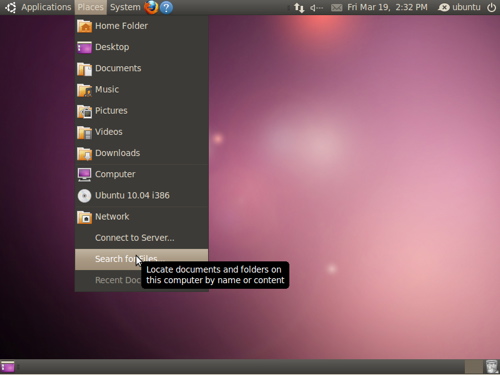











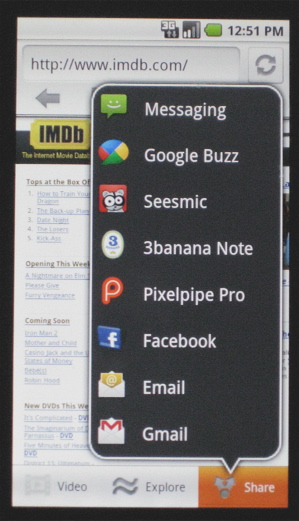


 There are a handful of issues of contention that broadcasters (who transmit content over the public airwaves) have with the Federal Communications Commission's Broadband Plan. One such outstanding dispute concerns the FCC's proposed reallocation of unused digital spectrum from broadcast to broadband purposes -- a way to get at least some of the estimated 180 MHz of spectrum wireless operators say they need, without another complete re-auction.
There are a handful of issues of contention that broadcasters (who transmit content over the public airwaves) have with the Federal Communications Commission's Broadband Plan. One such outstanding dispute concerns the FCC's proposed reallocation of unused digital spectrum from broadcast to broadband purposes -- a way to get at least some of the estimated 180 MHz of spectrum wireless operators say they need, without another complete re-auction.
 But waving in front of HP's obvious red flags were several more obvious white ones:
But waving in front of HP's obvious red flags were several more obvious white ones:
 Indeed, last week, Rubin was talking with us about the synergies that could
Indeed, last week, Rubin was talking with us about the synergies that could 
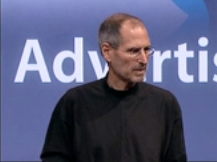 Jobs concludes his letter by saying, "Flash was created during the PC era -- for PCs and mice. Flash is a successful business for Adobe, and we can understand why they want to push it beyond PCs. But the mobile era is about low power devices, touch interfaces and open Web standards -- all areas where Flash falls short...New open standards created in the mobile era, such as HTML 5, will win on mobile devices (and PCs too). Perhaps Adobe should focus more on creating great HTML 5 tools for the future, and less on criticizing Apple for leaving the past behind."
Jobs concludes his letter by saying, "Flash was created during the PC era -- for PCs and mice. Flash is a successful business for Adobe, and we can understand why they want to push it beyond PCs. But the mobile era is about low power devices, touch interfaces and open Web standards -- all areas where Flash falls short...New open standards created in the mobile era, such as HTML 5, will win on mobile devices (and PCs too). Perhaps Adobe should focus more on creating great HTML 5 tools for the future, and less on criticizing Apple for leaving the past behind." Android apps crash. There's no other way to say it. If you spend a lot of time installing and testing new apps on Android devices, you know it.
Android apps crash. There's no other way to say it. If you spend a lot of time installing and testing new apps on Android devices, you know it.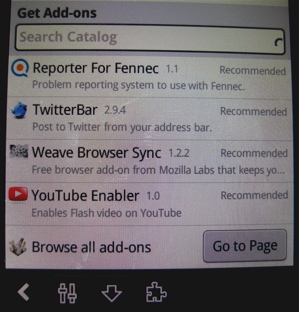

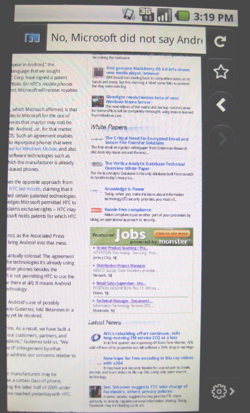



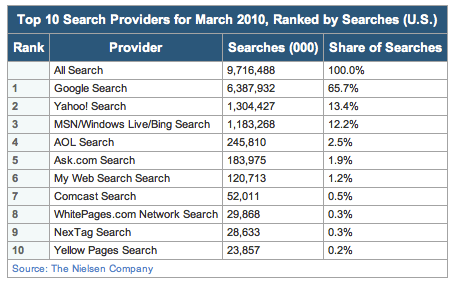

 A few years too late
A few years too late